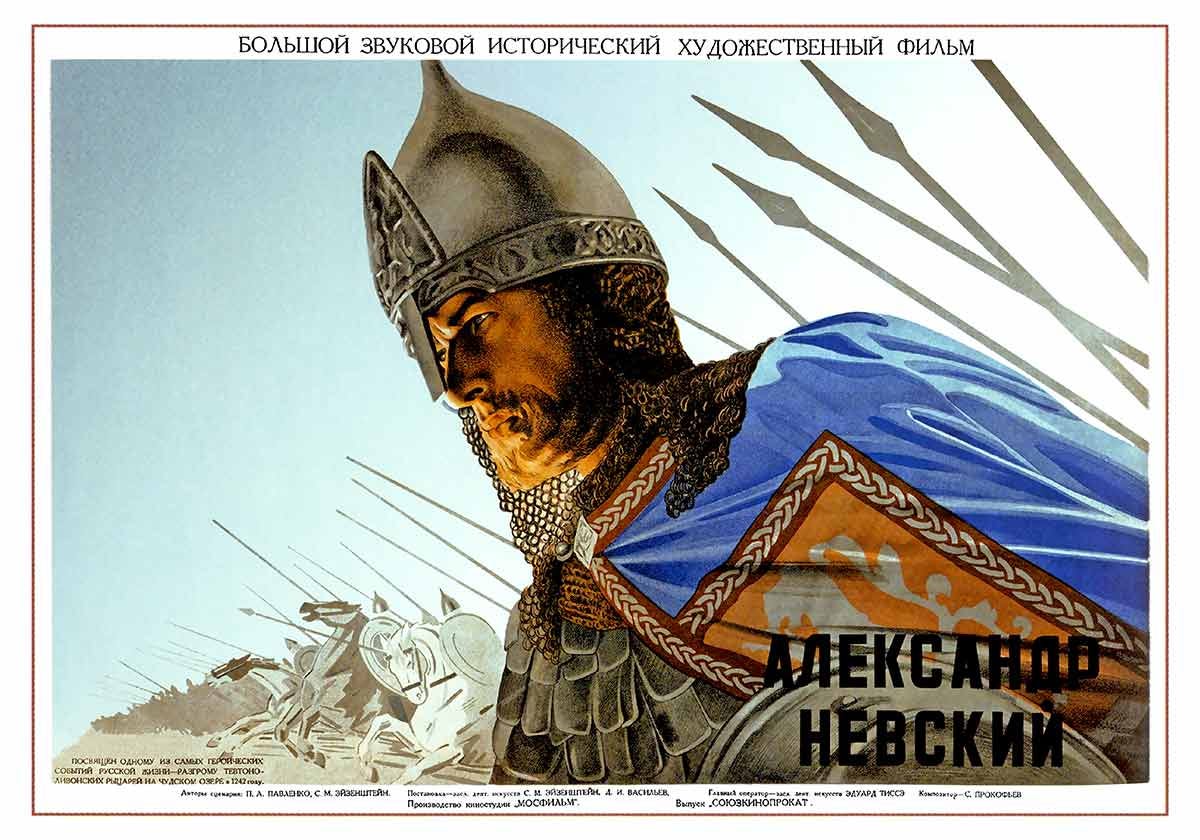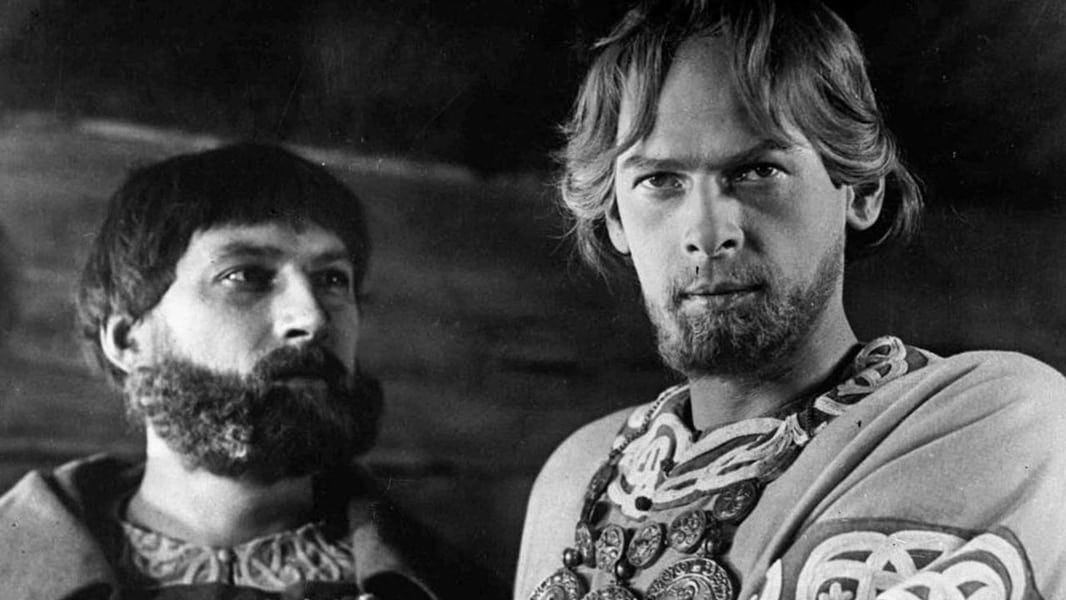A look at Eisenstein's Alexander Nevsky
The epic 1938 Russian propaganda war film
Though not a favorite film of mine, Sergei Eisenstein’s Alexander Nevsky (1938), left a lasting impression on me, especially after watching it live with the Seattle Symphony performing Prokofiev's score. The movie was a Stalin-approved propaganda film, anticipating the fight against the Germans in World War II.
Despite some corny and dated moments, the film includes breathtaking sequences like the iconic Battle on the Ice. Prokofiev’s score is among the greatest in film history, adding significant weight to the story. Alexander Nevsky is regularly ranked one of the greatest Russian and war films.
Below is a modern trailer for the film.
Set in 13th-century Russia, the film follows Prince Alexander Nevsky, a real-life Russian prince and Saint, who leads his people in defending against the invading German Crusaders. The climax, almost a quarter of the film, depicts the historic Battle on the Ice (1242), where Nevsky’s forces triumph. The battle scenes have a cast of thousands, with the extras being Soviet soldiers who later fought the Germans in WWII.
Though less experimental than Eisenstein’s earlier works, Nevsky showcases his visual mastery with precise choreography and dynamic camera work.
.
Key themes of the movie
The movie was a Stalin-approved propaganda film, anticipating the fight against the Germans in World War II.
Patriotism and Nationalism: The film underscores Russian unity and strength through Nevsky’s leadership.
Anti-Fascist Sentiment: Released amid rising tensions with Nazi Germany, the Teutonic Knights symbolize militaristic, dehumanized aggressors, often seen as a critique of fascism.
Religion vs. Secularism: The film, which is openly anti-Chritian, contrasts the religious fanaticism of the Crusading Catholic Knights with Nevsky’s secular pragmatism, reflecting Soviet ideologies.
Role of the Common People: The film highlights the importance of the common people in defending Russia, while aristocrats are portrayed as selfish, resonating with Soviet audiences.
Alexander Nevsky is a landmark in Soviet and historical cinema, influencing filmmakers with its epic battle scenes and powerful themes. The score and battle sequences have left a lasting legacy in film and music. The film was a major success in Soviet cinema, boosting Russian nationalism pre-WWII.
Below is a classic and beautifully filmed scene, with Prokofiev’s evocative music, showing the Russian Army anxiously awaiting the German Crusaders on horseback to cross the frozen lake for the final battle.



